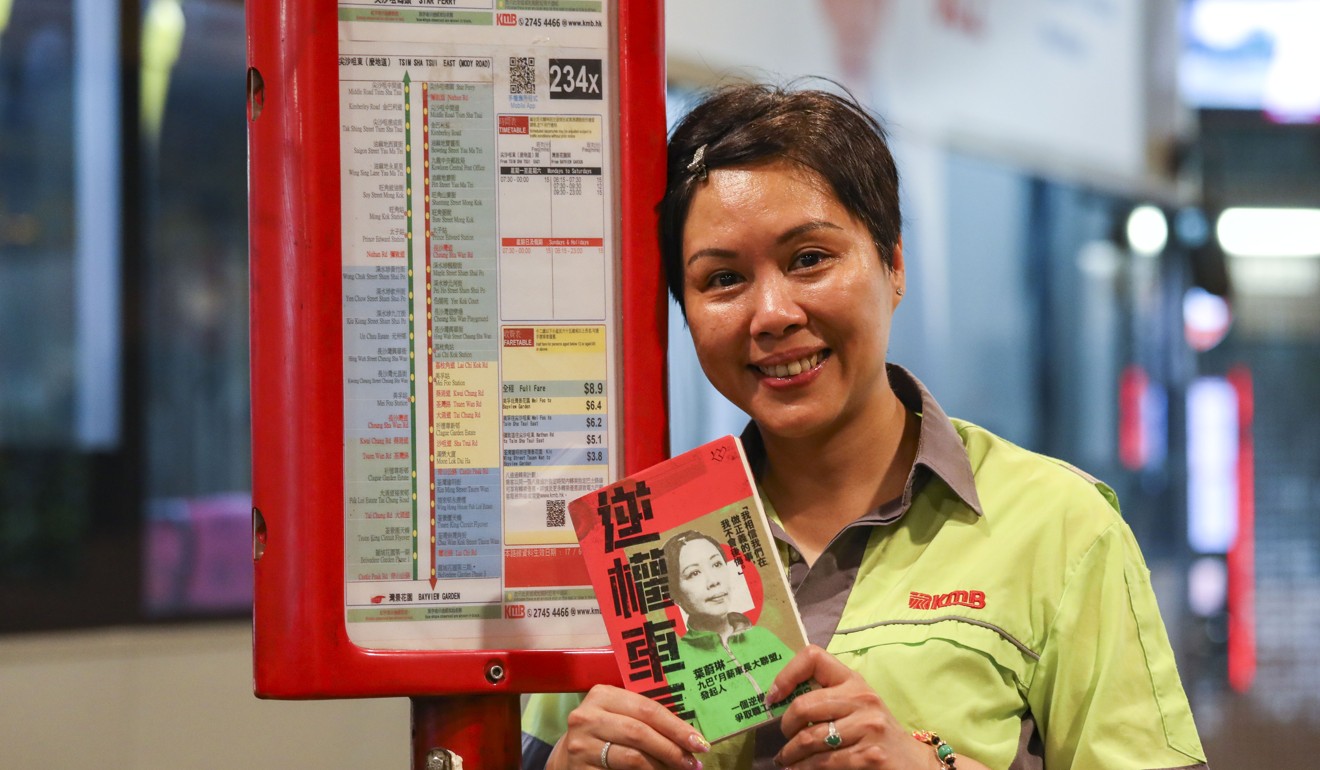
KMB bus driver who led wildcat strike reflects on incident in new book and says she has ‘no regrets’
Tracy Yip recounts how event in February united sectors in society, and hopes city’s radical young can show mutual respect when voicing opinions
Hong Kong people have a legal right to strike but few dare take action like bus driver Tracy Yip Wai-lam, who led a short-lived industrial protest to oppose her company’s pay restructure.
The 49-year-old artist-turned-driver made headlines in March when she was sacked one week after the late February strike. As public pressure mounted, Hong Kong’s largest bus company, KMB, made a sharp U-turn and allowed Yip to keep her job.
“I am the first to come forward. If [we have to] die, I die first. If there is punishment, I am the first to be punished. Sacrifice is needed in everything. [I] won’t back down,” she vowed during the strike.
Road strike by KMB bus drivers’ union over pay dispute ends before it takes off
Since then, Yip has been busy reflecting on her moment of fame and has written a book called Dissident Bus Driver available at this year’s Hong Kong book fair.
Yip said she wants to use her experience to inspire young people with radical ideas to show mutual respect when voicing their opinions.

“If people can ignore whether someone is ‘yellow or blue’, and instead work together for society and citizens, it can be so effective,” she said, referring to the colours that have come to symbolise a Hong Kong divided along political lines.
“I’ve just realised it is so serious ... society has become so divided [in recent years],” Yip said.
It was a rare opportunity in life to do what I should do. I have no regrets
She recalled how police, who were often seen as an oppressing force to protesters after the 2014 Occupy movement, had helped and advised her during her industrial action, which she put down to mutual trust and respect through communication.
But she also admitted she was “a bit radical” and that a friend with labour movement experience recommended she fight a quick battle and force a quick decision.
The wildcat strike that made Yip famous only lasted for about three hours on February 24. The Full-time KMB Driver Alliance that she set up argued that drivers’ voices were being ignored in the new salary terms the company agreed with the main drivers’ union, which was affiliated with the pro-establishment Federation of Trade Unions.

The alliance demanded a basic salary of HK$18,000 (US$2,300) – up from the proposed HK$15,365.
It also urged the company to scrap an annual performance appraisal of bus drivers – a test drivers complained put them under too much pressure.
KMB reinstates 4 drivers who took part in strike, warns them not to repeat actions
Yip described her labour movement as “special” because it was widely supported by society, adding that the government had helped her by saying KMB’s handling of the dispute had room for improvement.
“I was busy and stressed all the time. But it was a worthy cause. It was a rare opportunity in life to do what I should do. I have no regrets,” Yip said.
Having recruited hundreds of drivers to join her union, Yip pledged to stay in the industry. She is fighting for better working conditions for bus drivers and for their minimum salary to be set at HK$18,200 – the median monthly wage of the land transport industry – with other unions. She also said the ratio of male to female drivers in the company was about 9 to 1.
There are about 8,300 drivers in the company.
Yip said sometimes she would still think about what she should do if she lost he job, adding that one of her friends offered her a monthly wage of HK$30,000 to work for her sister’s pet shop.
“It was so touching. But I have to stay here until I can’t stay any longer. There are no other things that can attract me.”

